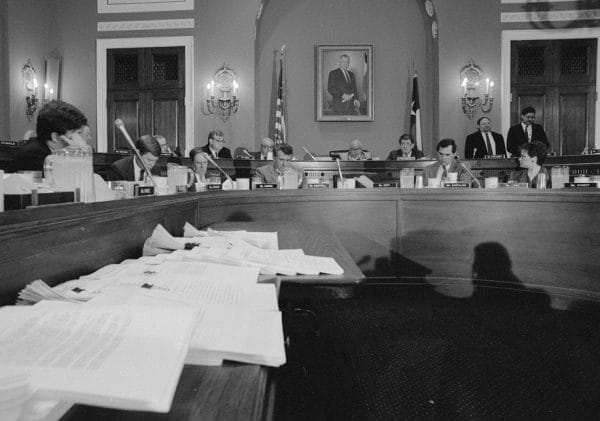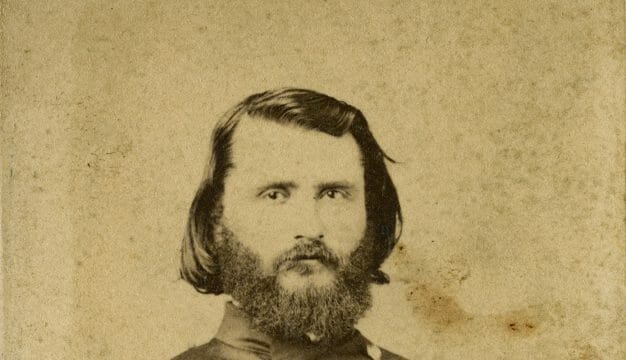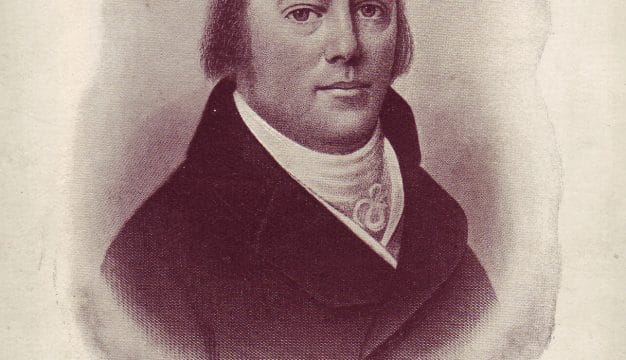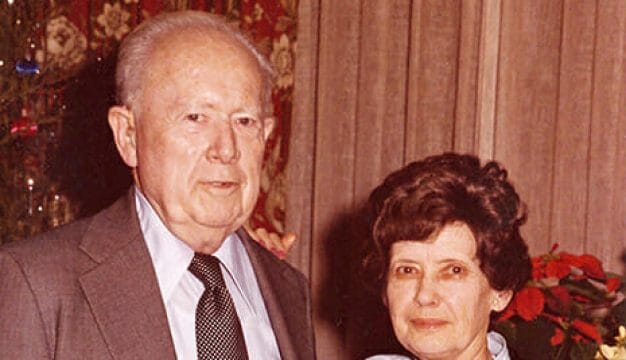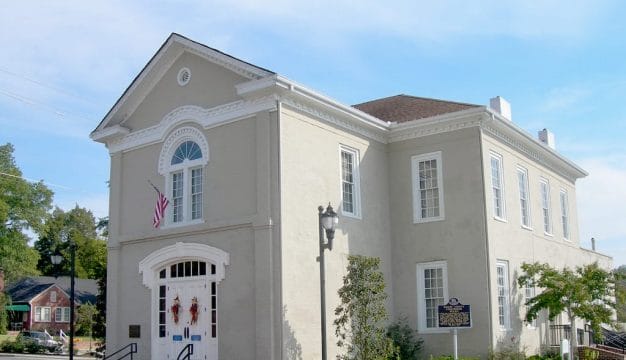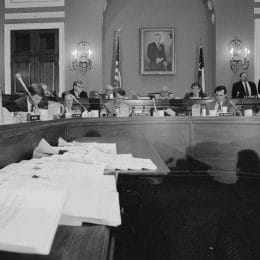Claude Harris Jr.
Claude Harris Jr. (1940-1994) served in the U.S. House of Representatives representing Alabama's Seventh District for three terms, from 1987 to 1993. Harris was a generally conservative Democrat and previously served in Alabama as a circuit court judge. After declining to seek reelection in 1992, Harris was appointed to the position of U.S. Attorney for the Northern District of Alabama by Pres. Bill Clinton in 1993. His tenure was brief though, as he was stricken with lung cancer soon after.
Harris was born in Bessemer, Jefferson County, on June 29, 1940, to Claude and Lemana Lois Hogue Harris; he was the youngest of two children. As a young man, Harris earned his bachelor's degree from the University of Alabama in 1962. Harris continued his studies at the University of Alabama Law School and was admitted to the Alabama State Bar in 1965. Harris became an assistant district attorney in Tuscaloosa County soon after law school, serving from 1965 to 1976. Harris was elected as circuit judge and served from 1977 to 1985. Additionally, he served in the Alabama Army National Guard. Harris married a woman named Barbara with whom he had two sons.
In 1986, Harris stood for election as a Democratic candidate for Alabama's Seventh Congressional District following incumbent Richard Shelby's decision to run for Senate. Harris carried the seat and faced only nominal Republican opposition in his two subsequent races. During his congressional career, Harris served on the Agriculture, Veterans Affairs, and Energy and Commerce committees. He largely followed in Shelby's conservative Democrat footsteps by adopting a voting pattern that was only slightly more liberal than Shelby. (Shelby later joined the Republican Party as a senator in 1994.) In addition to siding with Republicans on most foreign policy and defense issues, Harris opposed gun control and voted in favor of failed balanced budget and anti-flag-burning amendments. Harris voted with liberals on issues such as civil rights, increasing the minimum wage, and providing for the disabled. For several years, he was able to push through a resolution that declared a day in the second week of May as "Infant Mortality Awareness Day," but otherwise had little legislative impact.
Following the 1990 Census, the Seventh District was significantly redrawn, absorbing much of the African American population of the Sixth District in a corridor along present Interstate 20 that snakes into Birmingham. (A 1982 extension of the Voting Rights Act of 1965 provided for greater minority representation.) With the district now predominately African American and significantly more liberal, Harris's traditional base of support was displaced, and he opted to retire rather than attempt to win over this new constituency. Harris was succeeded by Democrat Earl Hilliard, the first African American to represent Alabama in Congress since Reconstruction.
In 1993, Harris was appointed to the position of U.S. Attorney for the Northern District of Alabama by President Clinton. Harris served in the post for about a year and died on October 2, 1994. He was buried in Memory Hill Gardens in Tuscaloosa. The position of U.S. Attorney for the Northern District would remain vacant until 1997 when Clinton appointed attorney and future Alabama senator Doug Jones of Fairfield, Jefferson County, to the position.
Fellow Alabamians in Congress lobbied unsuccessfully to have one of the buildings at the Tuscaloosa Veterans Memorial Center named for Harris. The bill was introduced by Republican Spencer Bachus, championed by Democrat Tom Bevill, and was cosponsored by the entire Alabama delegation and a few other Harris associates in Congress. The bill passed the House, but was not taken up by the Senate.
